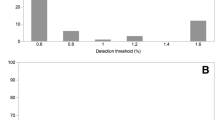Abstract
OBJECTIVE: Effective treatment of obesity is extremely difficult, and taste modulation has been suggested as a feasible option. We aim at presenting dangers associated with stroke-induced taste impairment. METHODS: A case report is presented with clinical and laboratory findings. We review literature on the effect of taste modulation on body weight. RESULTS: Eight months after suffering stroke, a 63-year old obese woman with a nine year-old history of type 2 diabetes patient reported headache and poor general feeling. Physical examination revealed sigificantly elevated blood pressure of 190/110 mmHg. The patient had never had elevated blood pressure before nor ever been taking any antihypertensive medication. However, stroke resulted in severe persisting dysgeusia. We found out that she had been using up 110 g of salt daily to make her meals palatable. Standard gustatory tests confirmed severe taste impairment, reflecting the lesion of the glossopharyngeal nerve. Taste loss was not associated with body weight reduction. Limiting daily salt intake to 5 g within 4 weeks resulted in lowering blood pressure to 120/70 mmHg. CONCLUSION: Stroke-induced dysgeusia may lead to increased salt intake in a type 2 diabetes patient, which caused development of severe hypertension. The taste loss did not yield any weight reduction. We suggest that aiming at reducing body weight by means of taste modulation should be done with caution. Physicians must be aware that patients may try to overcome dysgeusia by additional salt intake, if not adequately informed of the risk thereof.
Similar content being viewed by others
References
Padwal R., Li S., Lau D.: Long-term pharmacotherapy for obesity and overweight. Cochrane Database Syst. Rev., 4, CD004094, 2003.
Czupryniak L., Drzewoski J.: The role of pharmacotherapy in the treatment of obesity in adults. Pol. Merkuriusz Lek., 9, 741–745, 2000.
Freudenheim M.: A boom in surgery to shrink the stomach. New York Times, Aug 30–31, 2003.
Strzelczyk J., Czupryniak L., Loba J., Wasiak J.: The use of polypropylene mesh in midline incision closure following gastric by-pass surgery reduces the risk of postoperative hernia. Langenbeck’s Arch. Surg., 387, 294–297, 2002.
Strzelczyk J., Czupryniak L., Paw?owski M., Szyma?ski D., Nowicki M., Gaszy?ski T., Wo?niak-Sosnowska U., Wasiak J., Loba J.: Early results of surgical treatment of obesity. Diabetol. Pol., 10, 246–253, 2003.
Mitka M.: Surgery for obesity: demand soars amid scientific, ethical questions. JAMA, 289, 1761–1762, 2003.
Poothullil J.M.: Maintenance of weight loss using taste and smell sensations. J Women’s Health, 8, 109–113, 1999.
Woschnagg H., Stollberger C., Finsterer J.: Loss of taste is loss of weight. Lancet, 359, 891, 2002.
Henkin R.I.: Drug-induced taste and smell disorders. Incidence, mechanisms and management related primarily to treatment of sensory receptor dysfunction. Drug Saf., 11, 318–377, 1994.
Zeller J.A., Machetanz J., Kessler C.: Ageusia as an adverse effect of phenytoin treatment. Lancet, 351, 1101, 1998.
Golka K., Roth E., Huber J., Schmitt K.: Reversible ageusia as an effect of clopidogrel treatment. Lancet, 355, 465–466, 2000.
Smith F.R., Dell R.B., Henkin R.I.: Disordered gustatory acuity in liver disease. Gastroenterology, 70, 568–571, 1976.
Chapman-Novakofski K., Brewer M.S., Riskowski J., Burkowski C., Winter L.: Alterations in taste thresholds in men with chronic obstructive pulmonary disease. J. Am. Diet. Assoc., 99, 1536–1541, 1999.
Rousseaux M., Muller P., Gahide I., Mottin Y., Romon M.: Disorders of smell, taste, and food intake in a patient with a dorsomedial thalamic infarct. Stroke, 27, 2328–2330, 1996.
Onoda K., Ikeda M.: Gustatory disturbance due to cerebrovascular disorder. Laryngoscope, 109, 123–128, 1999.
Kim J.S., Choi S.: Altered food preference after cortical infarction: Korean style. Cerebrovasc. Dis., 13, 187–191, 2002.
Henkin R.I.: Evaluation and treatment of human olfactory dysfunction. In: English G.M. (Ed.), Otolaryngology. vol. 2. Philadelphia, Lippincott, 1993, pp. 1–86.
Henkin R.I.: Smell, taste, head trauma, and hypopituitarism. J. Clin. Endocrinol. Metab., 86, 1427–1428, 2001.
Warlow C., Sudlow C., Dennis M., Wardlaw J., Sandercock P.: Stroke. Lancet, 362, 1211–1224, 2003.
Law M.R.: Epidemiological evidence on salt and blood pressure. Am. J. Hypertens., 10 (suppl.), 42S–45S, 1997.
World Health Organisation: 1999 World Health Organisation — International Society of Hypertension Guidelines for the Management of Hypertension. J. Hypertens., 17, 151–183, 1999.
United Kingdom Prospective Diabetes Study Group: Tight blood pressure control and risk of macrovascular and microvascular complications in type 2 diabetes. UKPDS 38. BMJ, 317, 703–713, 1998.
Author information
Authors and Affiliations
Corresponding author
Rights and permissions
About this article
Cite this article
Czupryniak, L., Loba, J. Loss of taste-induced hypertension — caveat for taste modulation as a therapeutic option in obesity. Eat Weight Disord 12, e11–e13 (2007). https://doi.org/10.1007/BF03327775
Received:
Accepted:
Published:
Issue Date:
DOI: https://doi.org/10.1007/BF03327775




